All Stories
-
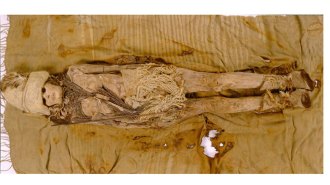 Archaeology
ArchaeologyThe world’s oldest cheese is now revealing some of its secrets
A DNA analysis of the kefir cheese, first found about 20 years ago on 3,600-year-old mummies in China, confirms its age and pinpoints its origins.
-
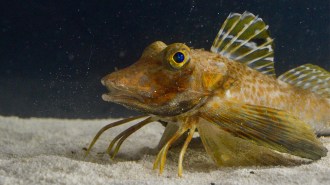 Animals
AnimalsThis fish has legs — and it uses them for more than just walking
Some sea robins have taste buds on their six crablike legs that help the fish ferret out prey buried in sand as they walk.
-
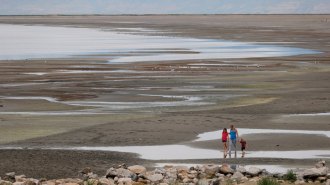 Earth
EarthReactive dust from Great Salt Lake may have health consequences
When inhaled, metals left by the shrinking lake could cause inflammation. Experts say more studies are needed to understand the impact.
By Skyler Ware -
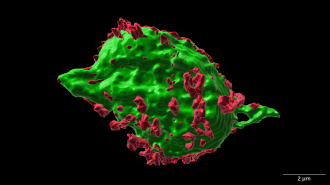 Neuroscience
NeuroscienceA study in mice hints at a new way to treat spinal cord injuries
The finding suggests that a drug to ease swelling can speed recovery and stop cell death.
-
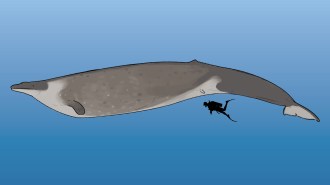 Paleontology
PaleontologySome of Earth’s extinct giants may have been smaller than thought
Evolving techniques and data indicate some ancient giants like Dunkleosteus and Megalodon may have been smaller than initial estimates suggested.
-
 Health & Medicine
Health & MedicineSemaglutide may reduce opioid overdoses, a new study suggests
A study of people with type 2 diabetes and opioid use disorder suggests that the key ingredient in Ozempic and Wegovy shows promise against addiction.
By Meghan Rosen -
 Psychology
PsychologyA brain network linked to attention is larger in people with depression
Brain scans revealed that teenagers with larger attention-driving networks were more likely to develop depression.
-
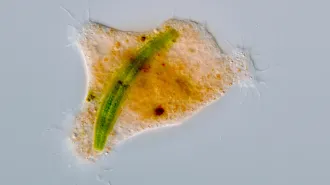 Microbes
MicrobesThis amoeba eats prey like owls do
Meet the ‘owl slime’ amoeba, which drains its prey and spits out the shell.
By Jake Buehler -
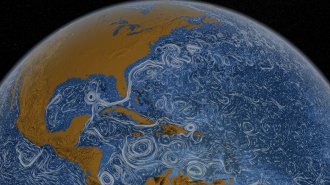 Oceans
OceansA vital ocean current is stable, for now
The Florida Current, a major contributor to a system of ocean currents that regulate Earth’s climate, has not weakened as much as previously reported.
By Nikk Ogasa -
 Particle Physics
Particle PhysicsPhysicists just discovered the rarest particle decay ever
The “golden channel” decay of subatomic particles called kaons could break or confirm the standard model of particle physics.
-
 Agriculture
Agriculture‘Smart lighting’ might make vertical farming more affordable
A new computer program adjusts grow lights to cut down on electric bills without sacrificing photosynthesis.
-
 Physics
PhysicsX-rays from nuclear blasts could defend Earth from asteroids
The X-ray pulses could deflect asteroids up to 4 kilometers wide, a new study suggests.
By Nikk Ogasa